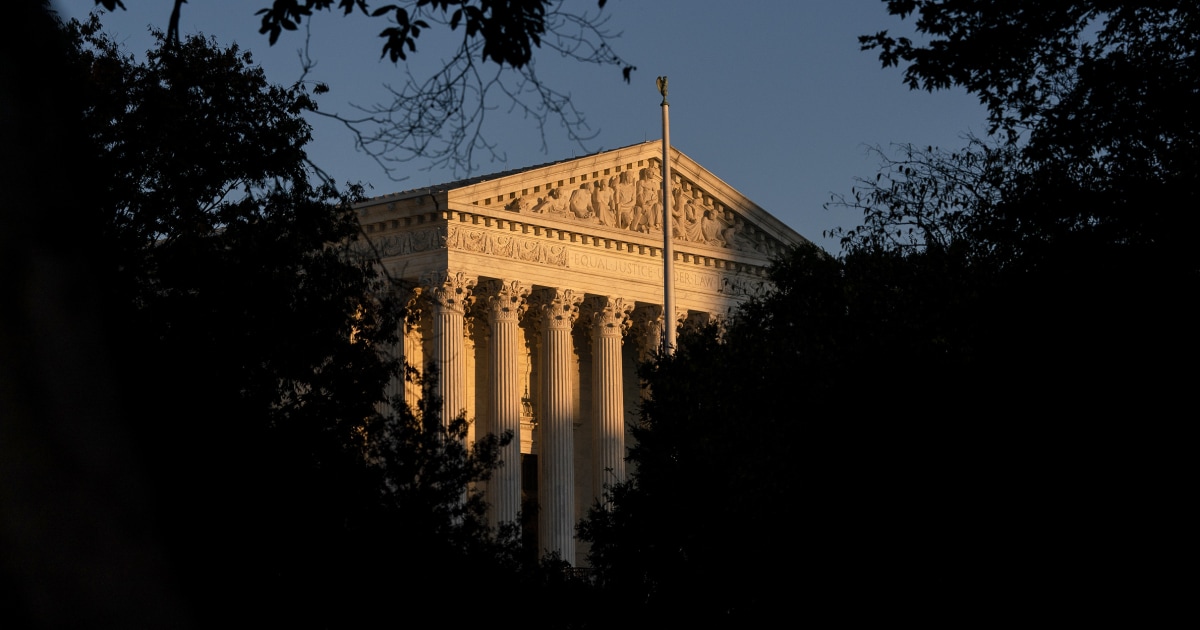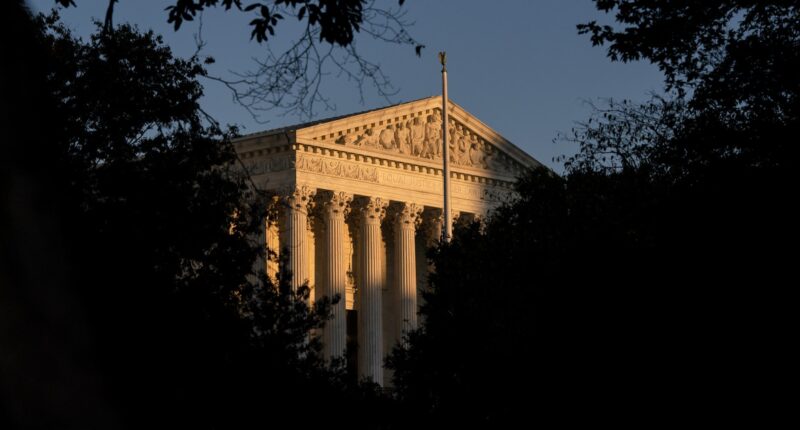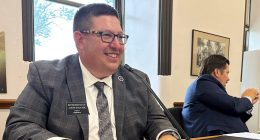
Late June is normally a peaceful time on college campuses. Not this year.
On Zoom calls, in working groups and in text chains, officials at elite schools are anxiously preparing. Within days, the Supreme Court could bar them from considering race as a factor in the admissions process.
“The truth is many colleges and universities have been preparing for this day for a long time,” Danielle Holley, the incoming president of Mount Holyoke College in western Massachusetts, said in an interview.
Holley, who was dean of the Howard University School of Law for the last nine years, is well-versed in the legal arguments for and against using race in college admissions. A daughter of two academics, she has been studying the case law since she was a young law student. Now, she’s focused on the practical implications of what the justices might do.
“Race is a critical part of how we do our work in higher education,” Holley said. “We don’t want tools taken away from us or our hands tied behind our back. … I’m extremely worried.”
The next scheduled day for the Supreme Court to issue rulings is Tuesday, with more rulings expected later in the week. The justices are considering a pair of affirmative action cases arising from challenges to the admissions processes at Harvard University and the University of North Carolina.
Both suits, which allege that the schools discriminate against Asian students (an accusation they deny), were brought by a group called Students for Fair Admissions, which is led by conservative activist Ed Blum.
The affirmative action cases are among 10 the court hasn’t yet decided as it heads into the final week of June, when its nine-month term traditionally concludes with a flurry of high-profile rulings. In addition to the affirmative action cases, the court will also rule soon on the Biden administration’s bid to revive its $400 billion federal student loan debt relief program.
Affirmative action, originally introduced to redress historical discrimination, has been a contentious issue for decades. Strongly supported by educational institutions and corporate America as vital to fostering diversity, it has been condemned by conservatives as antithetical to the notion that racial equality means all races are treated the same.
A year after the court eliminated women’s constitutional right to abortions, the sense of unease is palpable among administrators and officials from more than two dozen selective colleges and universities who spoke to NBC News. “Devastating” is how an administrator at a liberal arts college described admissions without the ability to consider a student’s race.
Although a decision ending affirmative action would arguably affect only a relatively small number of the colleges, administrators like Holley believe the impact could be significant. “We know that the most highly competitive colleges and universities in the country tend to produce many of the leaders that we see,” she said.
For decades, the Supreme Court has wrestled with the question of race in college admissions, but high-profile cases since 1978 have all largely landed in the same place. Admissions officers are allowed to consider a student’s race, but only as one factor in an individualized, holistic, nonformulaic way.
Schools can’t use quotas or set-asides, the court has ruled, but once students check boxes that indicate their race or ethnicity, those part of their identities can be taken into account. Until now, the court’s proffered justification has been that certain “educational benefits” flow from a diverse student body, but a majority of justices have also ruled that lower courts must scrutinize whether schools have tried “race-neutral” alternatives.
For nearly as long as affirmative action has existed, it has had its conservative detractors on the court. The most vocal has been Justice Clarence Thomas, whose former law clerks are now arguing the cases against the schools that the court is about to decide.
Thomas, only the second Black man to serve on the court, has spoken at length about his conflicted feelings about his experience at Yale Law School, based on his perception that he was admitted partly because of his race.
In recent years, the court has shifted further to the right, thanks to the three appointments made by former President Donald Trump, meaning Thomas’ view may finally prevail and the justices could conclude affirmative action violates both federal law and the Constitution.
In October, former Thomas clerks-turned-litigators spent hours at oral arguments trying to convince the justices that the schools haven’t been trying very hard if diversity is their real aim. They offered several alternative ways that colleges could produce non-homogeneous classes while still using “culture, tradition, heritage.” But race, the conservative lawyers argued, should be off-limits.
The problem, schools say, is the alternatives to race simply don’t produce the same results. Femi Ogundele, the dean of undergraduate admissions at the University of California, Berkeley, says he has seen that firsthand. California is one of nine states that banned the use of affirmative action for public universities. In the immediate aftermath, selective schools in the state had a 50% decline in Black and Latino students admitted. Those numbers have never rebounded.
Considering a future without affirmative action, some elite schools are devising alternative options to foster diversity, including reducing reliance on standardized tests or not considering them altogether. A bolder step would be to get rid of legacy admissions that favor the children of past graduates, and some schools, like Amherst College in Massachusetts, have already announced plans to do so. Other colleges plan to rely more on partnerships with certain high schools and pipeline programs with track records of success.
But no school has a firm game plan yet, at least one it is willing to state on the record.
“We’re going to figure out very quickly which institutions truly care about diversity and equity,” Ogundele said. “I think it is the beginning of the conversation and not the end for talking about equity and access to higher education.”
Source: | This article originally belongs to Nbcnews.com









